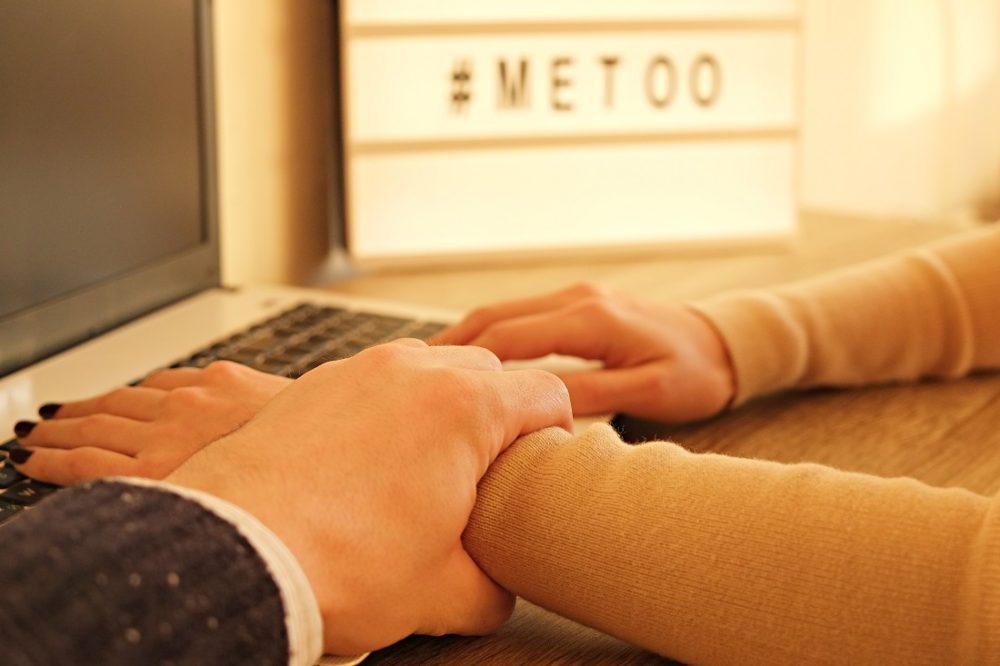Little reason for moral panicking after #MeToo
Men and women generally agree on what constitutes sexual harassment.
Yes, you can still give a colleague a regular hug, even after #MeToo. The boundaries are usually a little broader than you might imagine from googling the topic.
“There’s little reason for moral panicking. Men and women generally agree on what is okay or not,” says Professor Leif Edward Ottesen Kennair in NTNU’s Department of Psychology.
A research group at NTNU has investigated what is perceived as sexual harassment at work. The background for the study is the #MeToo movement and the recent attention on the topic. Most people can rest easy.
“It’s not true that men and women can’t be friends, work together or even flirt at work after #MeToo,” says Andrea Melanie Kessler, first author of a recent article in Sexuality & Culture and PhD candidate in the Department of Psychology at NTNU.
“You might think that everything is illegal now from all the press coverage. But this probably has polemical causes,” says Kennair. In other words, these press releases are formulated in a specific way to curb the influence of the #MeToo movement.

A friendly congratulatory hug is still OK. Both women and men agree on this.Photo: Shutterstock, NTB Scanpix
Okay and not okay
But something that is okay in one context is not necessarily so in another. The researchers therefore used various scenarios and set different conditions to see when different types of actions were perceived as sexual harassment.
“The debate has often been characterized as either/or. Many people have asked, ‘Are we not allowed to do that anymore?’” says co-author and postdoctoral fellow Trond Viggo Grøntvedt.
But what goes depends on several circumstances. So what’s okay and what’s not okay? A few example might be helpful here. Most people will find them obvious.
A hug to congratulate someone in the workplace will usually not be seen as harassment, but if the person giving the hug slides their hand a little farther down the recipient’s back, people will judge it as crossing the line.
The silly joke you told around the lunch table won’t necessarily be considered harassment. But it immediately becomes more serious if sexually oriented jokes are told to individuals, and the behaviour repeats itself often.
“A single tactless joke is one thing, but it can get worse when the jokes become repetitive and are then perceived as part of someone’s personality,” says associate professor Mons Bendixen, also from NTNU’s Department of Psychology.
There can be plenty of reasons not to flirt with or date people at work, but you need hardly worry that simply approaching someone will be perceived as sexual harassment. However, it would be worse if a no doesn’t stop you, and you just keep going and maybe push harder.
In general, certain behaviours can be perceived as more problematic in a private setting than in a public one.
What definitely is NOT okay is when someone demands sexual services to help another person. This is an extreme behaviour that most people think is wrong. In any case, supervisors need to be more careful about how they behave toward subordinates.
Men also experience harassment
The only point where men and women perceive harassment differently is which gender tends to be the offending party.
“Men often regard women’s actions as less harassing than men’s. Women don’t distinguish between the sexes that way,” says Kessler.
Thus, men more often regard men’s behaviour as worse than women’s behaviour, even under seemingly equal conditions. This is something that the researchers plan to explore in future studies.
It is important to note that these study results apply to Norwegian conditions. By international measures, Norway is generally a gender-equal and sexually liberal country, although this does not apply everywhere. But we don’t know for sure.
“As far as we know, this is the only study in the field that also asks about women’s harassment of men,” says Kennair.
The notion that it’s women who are sexually harassed almost exclusively is widespread and simply wrong, along with the idea that only opposite-sex harassment takes place.
“Previous research in Norway shows that men and women experience harassment equally often, both as students in higher education and in working life,” Bendixen says.
The results are largely in line with what the researchers expected.
Encouraging
Kessler believes the results are encouraging.
The #MeToo movement has undoubtedly generated necessary attention about matters that most people think are reprehensible. But it may also have created unnecessary limits to normal behaviour.
“For example, we know of cases where men are reluctant to become mentors for women because they want to avoid suspicion. This can ruin opportunities for some women,” says Kessler.
Sexual harassment is a significant problem. In order to reduce sexual harassment, it is important to clarify where the boundaries are and to start thinking about sexual harassment in a less stereotypical way.
The research group collected data for their study from almost 500 men and women with different backgrounds and an average age of 33. The participants to a great extent related their own personal experiences from work. Ida Bjørkheim and Idun Drejer collected the data as part of their thesis.
Source: Sexuality & Culture. The Effect of Prototypical #MeToo Features on the Perception of Social-Sexual Behavior as Sexual Harassment. Andrea Melanie Kessler, Leif Edward Ottesen Kennair, Trond Viggo Grøntvedt, Ida Bjørkheim, Idun Drejer, Mons Bendixen. https://doi.org/10.1007/s12119-019-09675-7




